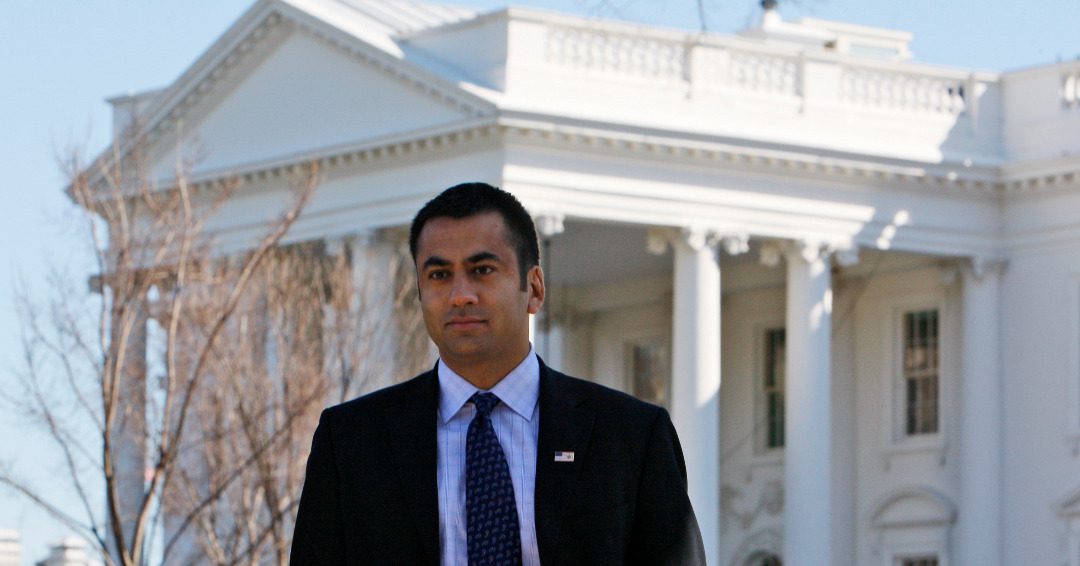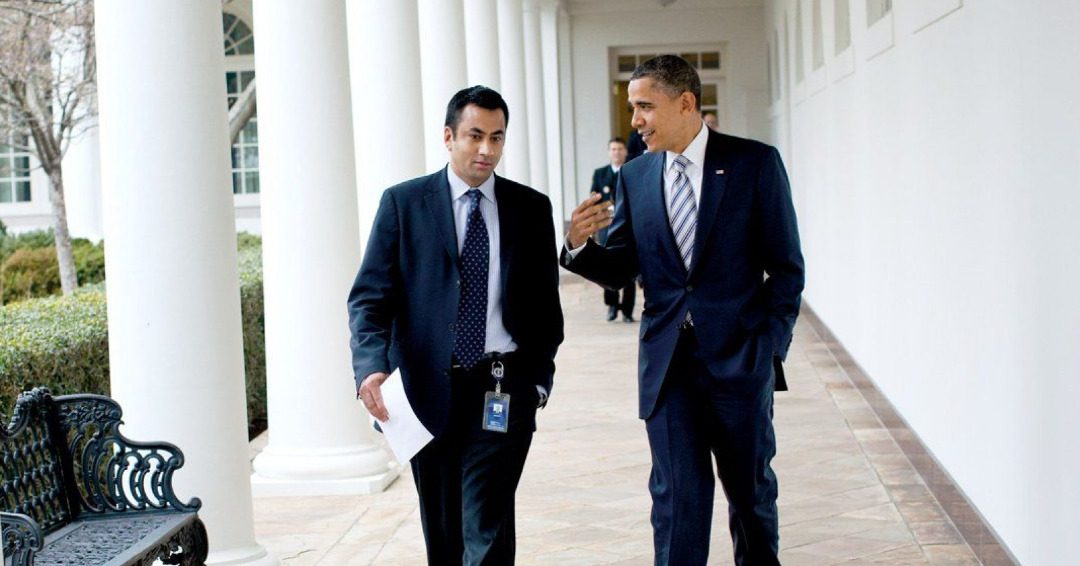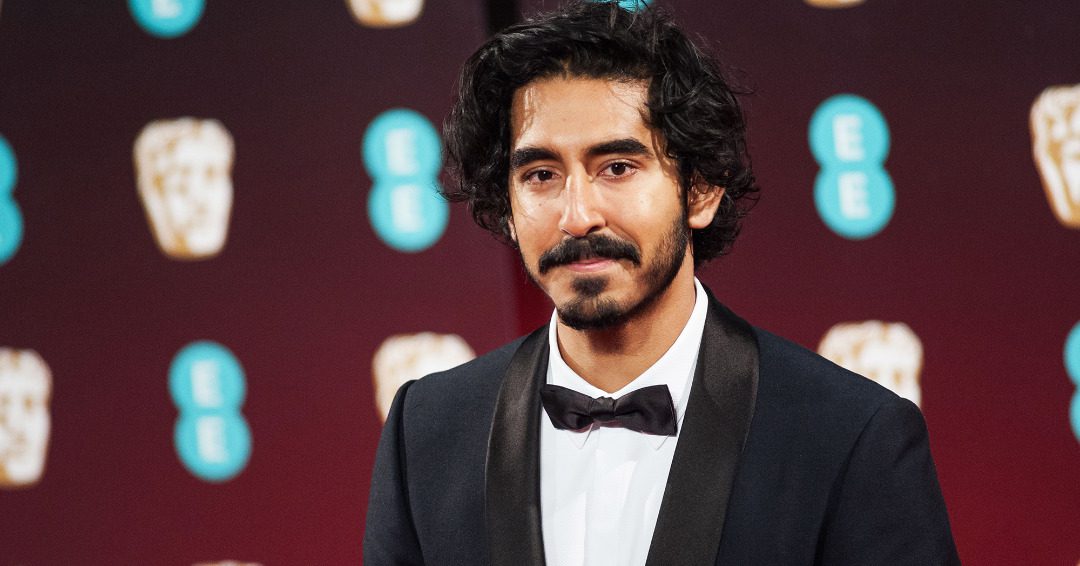(August 24, 2021) Who could have possibly thought that an Indian-American actor would not only campaign for Barack Obama but also earn a position in his administration? But that’s Kal Penn for you. A Hollywood actor who decided to work for the people of America because he believed in the cause and purpose.
It wasn’t just his stunning performances on the big screen that amazed people across the globe, but his decision to serve the people of America too came as a welcoming surprise to many. The 44-year-old, who began his career in films and TV in America, has come a long way. Here’s the story of this Global Indian who put a South Asian in the White House.

Kal Penn at the White House
Love for theatre translated into films
Born as Kalpen Suresh Modi in New Jersey to Gujarati Indian immigrant parents, Penn was closer to his roots as he visited Gujarat every year during his school vacations. It was here that he heard the stories of his grandparents marching with Mahatma Gandhi during the Indian Independence movement. Imagining his own grandparents playing a pivotal role in the most crucial chapter of history got Penn interested in politics at a young age. Apart from politics, it was music and theatre that had a huge influence on his early life. During his school days, he played baritone saxophone in the jazz band and was an active member in theatre productions. This love extended to college where he majored in theatre from the Fine and Performing Arts Academy, and he soon graduated from UCLA with a double major in sociology and film.
Acting was Penn’s first love and he wanted to explore it as a career beyond his training in theatre. But he wondered if Kalpen Suresh Modi on his resume would get him any calls as his friends warned him that only anglicized names appeal more to a white-dominated industry. “Almost as a joke to prove friends wrong, and half as an attempt to see if what I was told would work, I put Kal Penn on my resume and photos,” he said in an interview. Interestingly, his audition callbacks rose significantly, and he continued using Kal Penn for professional purposes.
The initial struggle with typecasting
It was in 1998 that he made his feature film debut with a short film Express: Aisle to Glory. But at that time Hollywood was playing heavily on cultural stereotypes and Penn found minimal exposure with films like American Desi, Cosmopolitan and Love Don’t Cost A Thing. The scripts never got fancier beyond the roles of a computer geek or a foreign student or a terrorist during the initial days at work.
View this post on Instagram
In a conversation with Hindustan Times, he said,
“Being an actor is tough no matter what your ethnic background, but adding race to the game makes things hundreds of times harder. Starting out for me was particularly difficult. There wasn’t and still isn’t relatively, much support for the arts in the South Asian American community. In the workplace, it’s tough to get seen for roles that aren’t written with a specific “look” in mind, so there are times when one makes a decision to take a role based on the need to build a resume rather than an artistic outlet.”
The breakthrough role that made Penn popular
View this post on Instagram
But it was the 2004 film Harold & Kumar Go to White Castle that catapulted Penn to fame. His breakthrough performance made him a household name. This popularity translated into more roles on American TV as well as in films. Mira Nair, too, was impressed with his performance and cast him in the role of Gogol Ganguli in the screen adaptation of Jhumpa Lahiri‘s Namesake. Penn moved away from his regular roles and pulled off a character that was deep and complex.
“The film itself was the most artistically rewarding experience of my life. The experience I had working on The Namesake showed me that it was possible to tell a refine, compelling story that is universal as it is personal,” he told the Hindustan Times.
From White Castle to the White House
With shows like 24 and House in his kitty, Penn was happy playing the roles that were getting him diversify as an actor. But the 2007 writer’s strike came as a blow to the industry which almost paralyzed much of Hollywood. Penn found a unique opportunity in this as he packed his bags and moved to Des Moines to help the Barack Obama camp get ready for the Iowa caucus in January 2008. It was Obama’s 2004 speech at the Democratic convention that vaulted him to the national stage, and Penn believed him to be a rising politico who was changing the status quo.
So when the chance came to be a part of the campaign, Penn grabbed it with both hands. “The thing that drew me to his campaign was that he wasn’t taking lobbyist money; he actually opposed the Iraq war early on; he had a plan for a lot of things that a lot of other folks just seemed resigned to doing,” Penn told the Los Angeles Times.
After the writer’s strike was called off, Penn returned to work but he did make time for Obama’s presidential campaign in 2007 and 2008. It was in early 2009 that Penn took a year long break from his career in Hollywood and took up the position of Associate Director of the White House Office of Public Engagement and Intergovernmental Affairs. In his new role, Penn served as a liaison with the Asian-American and Pacific Islander communities. In June 2010, keeping up with his agreement, Penn returned to his acting career and after completing A Very Harold & Kumar 3D Christmas in November 2010, he resumed his work in the Obama administration.
View this post on Instagram
After his re-election, Obama appointed Penn to serve on the President’s Committee on the Arts and Humanities. A year later, he served as the Master of Ceremonies for the White House Student Film Festival. It was in 2017 that he and other members of the committee resigned in response to President Donald Trump‘s remarks on the Unite the Right rally.
Giving back
In 2017, Penn won the MasterChef Celebrity Showdown and donated the $25,000 cash prize to UNRWA, a United Nations relief and human development agency that supports Palestinian refugees.
The same year, following a racist comment from a user on his Twitter feed, Penn crowd-funded a fundraiser for the refugees of the Syrian Civil War and raised $813533 at a time when Donald Trump had banned immigration to the US from Syria, Yemen and Sudan.
From being an outsider with no godfather to becoming a household name in Hollywood, Penn is one of those South Asians who are representing diversity on a global scale. The 44-year-old is one of those rare Indians who made a stellar appearance on the big screen as well as in politics.



